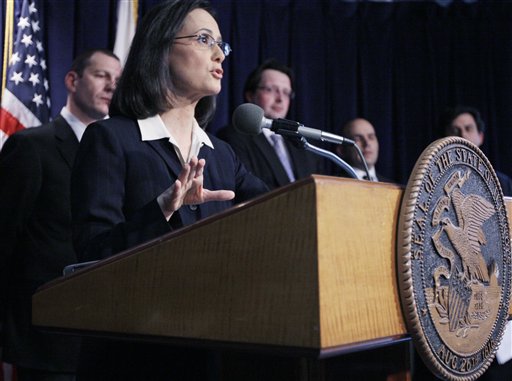In Illinois ex rel. Madigan v. Telemarketing Associates, Inc., 538 U.S. 600 (2003), the Supreme Court ruled that state efforts to pursue fraud charges against fundraisers and telemarketers for misrepresenting monies collected in fundraising campaigns did not violate the free speech clause of the First Amendment.
Illinois Supreme Court barred the pursuit of fraud charges
The Illinois attorney general had pursued fraud charges against Telemarketing Associates, Inc. for keeping 85 percent of funds solicited for Vietnam veterans while representing otherwise.
The Illinois Supreme Court had ruled that Schaumburg v. Citizens for a Better Environment (1980), Secretary of State of Maryland v. Joseph H. Munson Co., Inc. (1984), and Riley v. National Federation of the Blind (1988) had barred such charges, but the U.S. Supreme Court decided differently in a unanimous decision, with Justice Ruth Bader Ginsburg delivering the opinion of the Court.
Court said pursuing charges did not affect protected speech
Acknowledging that prior decisions had determined that a state could not set a specific percentage on monies collected in fundraising campaigns to be allocated to affected charities, Ginsburg observed that, “when nondisclosure is accompanied by intentionally misleading statements designed to deceive the listener, the First Amendment leaves room for a fraud claim.” Ginsburg recognized that states had a substantial interest in preventing fraud in charitable solicitations.
She further ruled that, “So long as the emphasis is on what the fundraisers misleadingly convey, and not on percentage limitations on solicitors’ fees per se, such actions need not impermissibly chill protected speech.” The actions at issue did not constitute a prior restraint but targeted fraudulent representations.
Under Illinois law, the attorney general had to “show that the defendant made a false representation of a material fact knowing that the representation was false; further, the complainant must demonstrate that the defendant made the representation with the intent to mislead the listener, and succeeded in doing so.” Such a standard provided “sufficient breathing room for protected speech.”
Justice Antonin Scalia wrote a concurring opinion, joined by Justice Clarence Thomas, which also focused on the “‘solid core’ of misrepresentations … that go well beyond mere commitment of the collected funds to the charitable purpose.”

